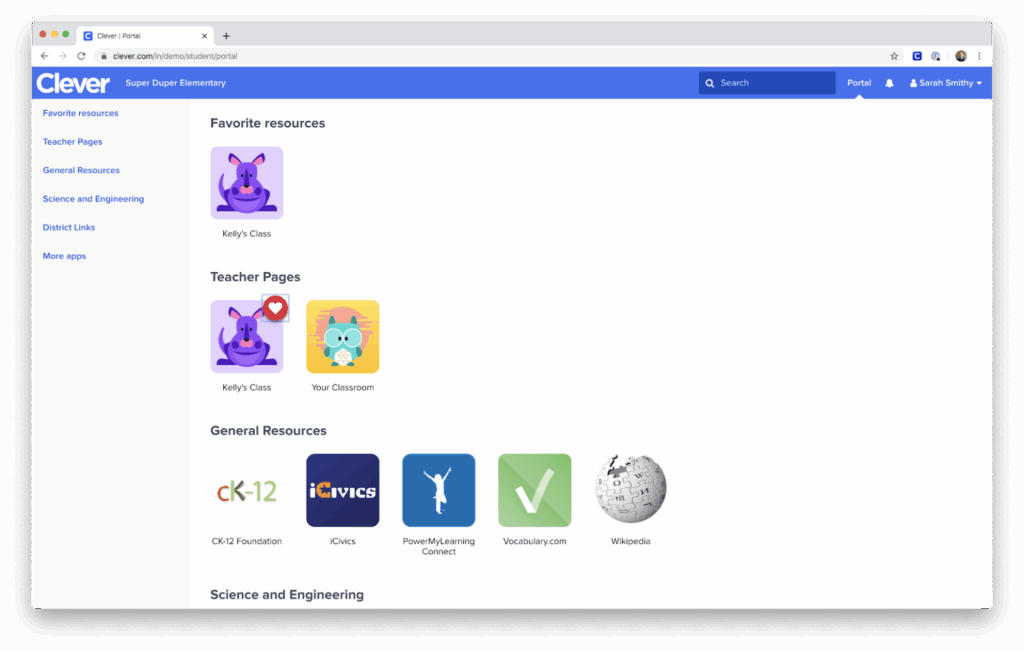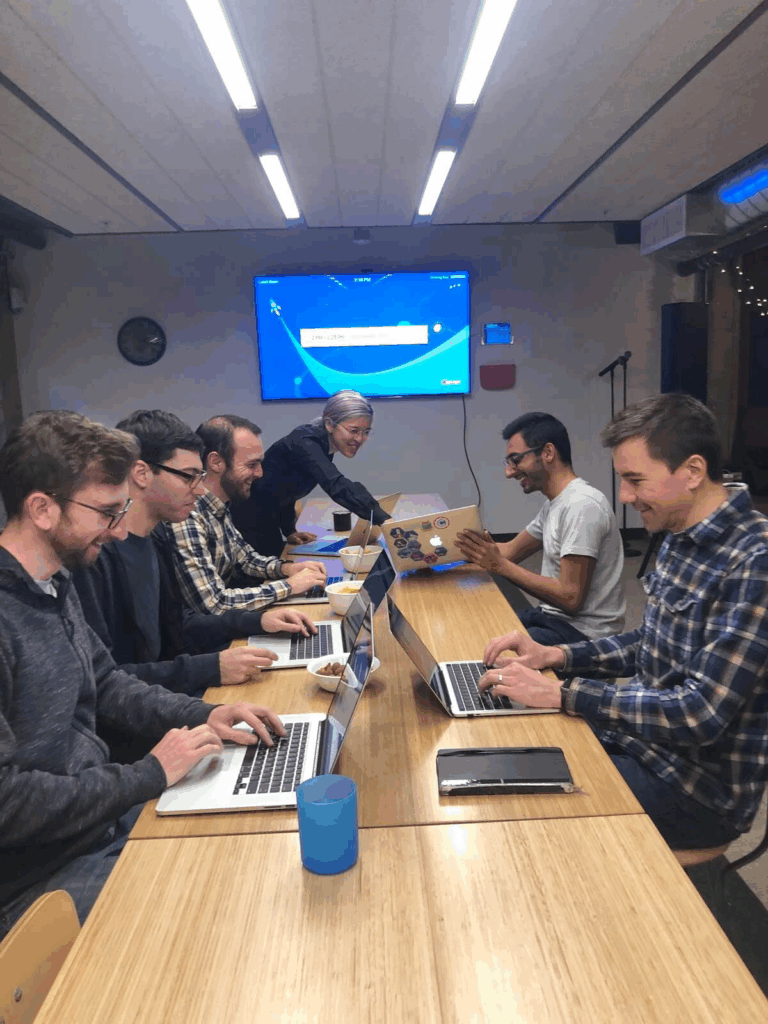Classroom Technology Used Country-wide
You don’t have to be a third-grader to struggle with passwords. Clever’s single sign-on technology makes it easy for students to “log in and learn.” With over half of US public schools using Clever’s tools, their technology has the power to impact the education of millions of students from kindergarten through 12th grade.
While technology has the power to be a great equalizer, if students cannot access their educational tools, this results in a great learning disparity. Clever understood that if their edtech tools are not accessible, not all students will have the same opportunity to learn.
Clever’s internal team recognized the importance of accessibility for their users, but didn’t know how much work was required to become accessible. Unsure of where to start, Clever turned to Deque for an accessibility audit.

shown by the heart icon in the corner of an application.
Taking Action after an Audit Report
Clever dove right into remediating the Student Portal after receiving an initial audit. The Clever team prioritized the Student portal because it is used by the largest group (students), was the least expensive to tackle (due to relative size and complexity), and, most importantly, because kids’ education was at stake.
Clever worked with Deque to measure the Student Portal experience against WCAG standards. Using the results and suggestions in the audit, the Clever team executed major improvements to the Student Portal. Changes include improvements to the color contrast in the login screen, reworking decorations to be “additive” and “delightful” instead of distracting, and developing common user actions like “favoriting” apps to be keyboard navigable.
Using the provided issue links that connect users to Deque University, Clever’s developers were able to better understand each issue presented in their audit. When working through particularly difficult issues or issues that needed more context, the Clever team utilized Deque Service Hours for access to Deque subject matter experts and guidance on remediation. Deque also assisted Clever in some of the more complex manual testing.
“Access to learning software should not be limited by ability.”
— Jamie Reffell
Director of Design, Clever
The Clever team recognizes that the considerable improvements made to the Student Portal are not the end of their accessibility journey. Clever’s technology is constantly evolving to fit the needs of the classrooms it’s in.
Not only is the Clever team building new tools for the student portal and maintaining its accessibility, but they are already working on expanding accessibility work to the Teacher Portal, which has more complex features. Armed with a methodical and program-driven approach, Clever is set on building additional awareness and training for their internal teams to ensure continued success.
For software developer Anthony Fumagalli, the engineering lead on the accessibility project, a key takeaway for him to practice accessibility in the future was to seek out accessible code from third-party sources and to uphold an internal component library that is consistent and accessible. Many issues, he notes, were derivative of pulling in inaccessible code from third-party sources.

“People are in the practice of auditing their code for security issues. Doing the same for accessibility issues is very worthwhile.”
— Anthony Fumagalli
Software Engineer, Clever
Committed to scaling and maintaining accessibility
The scope and impact of Clever’s tools is in the numbers– over 15 million students use Clever’s technology. Creating and upholding an accessible experience for students, teachers and administrators alike has the potential to better education and limit the barriers to learning.
Remediation also resulted in finding new opportunities for innovation and improving their product. Clever recognized an opportunity for accessibility in Clever “Badges.” Originally created for young kids to be able to log in without passwords, Clever Badges utilize QR code technology to help kids access their portal. Clever realized this technology was not only great for young kids, but also for students with disabilities that might make it difficult to type or remember passwords as well as a great asset to special education teachers.
“We’re learning more and more how to do a great job to ensure that all of our products are accessible to folks of all levels of ability.”
– Jamie Reffell
Director of Design, Clever
Additional resources
Webinar
Clever: Accessible Edtech
How Clever, the most widely used SSO platform for K-12 education, undertook accessibility changes that impacted millions of students.
Watch Now
Resource
Digital Accessibility in Education
Meet your compliance goals and provide an inclusive experience for all students. Learn more about providing equal access to education.
Read More
Get accessibility help
Contact us
Wherever you are on your accessibility journey, we’re here to help. Get it touch with Deque experts to reach digital accessibility goals.
Contact Us
